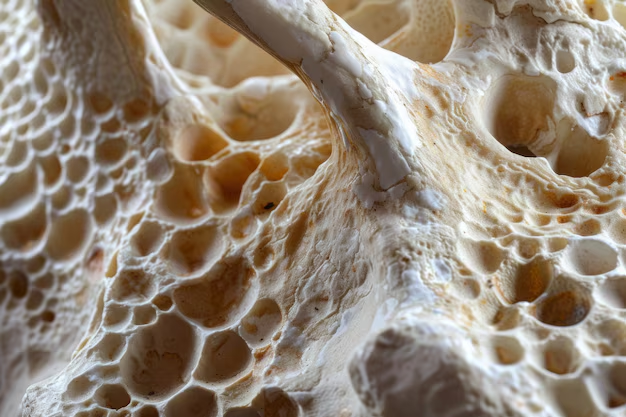Your Guide to Is Osteoporosis Genetic
What You Get:
Free Guide
Free, helpful information about Osteoporosis FAQ and related Is Osteoporosis Genetic topics.
Helpful Information
Get clear and easy-to-understand details about Is Osteoporosis Genetic topics and resources.
Personalized Offers
Answer a few optional questions to receive offers or information related to Osteoporosis FAQ. The survey is optional and not required to access your free guide.
Is Osteoporosis Genetic? Discover the Connection and Support Options Available
Osteoporosis is a condition that whispers its presence, silently weakening bones until the slightest strain or fall can lead to fractures. This stealthy disease predominantly affects older populations, particularly women, posing a global health challenge. But is osteoporosis genetic? Let’s decode the genetic link while exploring available financial and educational support for those affected.
Understanding the Genetic Influence on Osteoporosis
Osteoporosis is indeed influenced by genetics, making your family tree a crucial factor in assessing your risk. Studies have shown that genetic factors can account for up to 75% of bone density variance in adults. If your parents or grandparents had osteoporosis, your chances of developing the condition increase.
While genes like the vitamin D receptor (VDR) and estrogen receptor (ER) genes play roles, osteoporosis is typically a result of both genetic and environmental factors. Lifestyle choices such as a diet low in calcium, physical inactivity, excessive alcohol, or smoking can exacerbate genetic predispositions.
Understanding this interplay is enlightening because it emphasizes the potential for prevention and management. Even if your genetics signal a higher risk, adopting healthy habits can help bolster your bone health.
Preventive Measures and Lifelong Management
Preventing or managing osteoporosis goes beyond genetic considerations. Here’s what you can do:
- Calcium and Vitamin D-rich Diet: Foods like dairy, leafy greens, and fortified cereals are essential.
- Regular Exercise: Weight-bearing activities like walking or lifting weights help maintain bone density.
- Avoid Risky Behaviors: Limit alcohol consumption and quit smoking to reduce your risk.
- Routine Screenings: Bone density tests can help detect changes early, giving you a head start on treatment.
Financial and Educational Support for Those at Risk of Osteoporosis
Navigating life with osteoporosis or an increased risk of it can be daunting. Fortunately, numerous resources are available to ease the related financial and educational burdens.
Government Aid Programs: Medicare and Medicaid often cover bone density screenings for eligible individuals. Check your eligibility for these services to ensure timely intervention.
Financial Assistance for Medications: Programs like Prescription Assistance Programs (PAPs) may reduce the cost of osteoporosis medications for those without insurance or with limited financial means.
Educational Grants: Individuals looking to learn more about managing osteoporosis can explore specialized programs offered by non-profits or community colleges, sometimes at discount rates or with scholarships.
Personal Health Insurance Reviews: Reviewing your health insurance plan can reveal potential coverage for bone health management, preventive screenings, and treatment options.
Community Resources: Non-profits often offer educational workshops for patients and caregivers, providing valuable information on osteoporosis management.
Next Steps for Better Bone Health
Understanding the risk factors associated with osteoporosis, whether genetic or lifestyle-related, empowers you to take proactive steps. Engage with healthcare providers to tailor preventive measures to your specific profile, and utilize available resources to manage any financial or educational burdens.
Quick Reference to Financial Assistance and Support Programs
🏥 Healthcare Assistance:
- Medicare and Medicaid for eligible screenings
- Prescription Assistance Programs for medication cost reduction
🎓 Educational Opportunities:
- Scholarships or discounted courses on osteoporosis management
💸 Financial Resources:
- Health insurance plan reviews for coverage options
- Community workshops for patient education
Taking charge of your health, irrespective of genetic predisposition, sets the foundation for stronger, healthier bones. By accessing available supports, you ensure your journey with osteoporosis, or the risk thereof, is not traveled alone.
What You Get:
Free Osteoporosis FAQ Guide
Free, helpful information about Is Osteoporosis Genetic and related resources.

Helpful Information
Get clear, easy-to-understand details about Is Osteoporosis Genetic topics.

Optional Personalized Offers
Answer a few optional questions to see offers or information related to Osteoporosis FAQ. Participation is not required to get your free guide.


Discover More
- a Nurse Is Caring For a Client Who Has Osteoporosis.
- a Percutaneous Is Performed To Treat Osteoporosis Related Compression Fractures
- Can Alcohol Cause Osteoporosis
- Can I Do Pilates If I Have Osteoporosis
- Can I Reverse Osteoporosis
- Can Men Get Osteoporosis
- Can Osteoporosis Affect Teeth
- Can Osteoporosis Be Cured
- Can Osteoporosis Be Painful
- Can Osteoporosis Be Reversed
